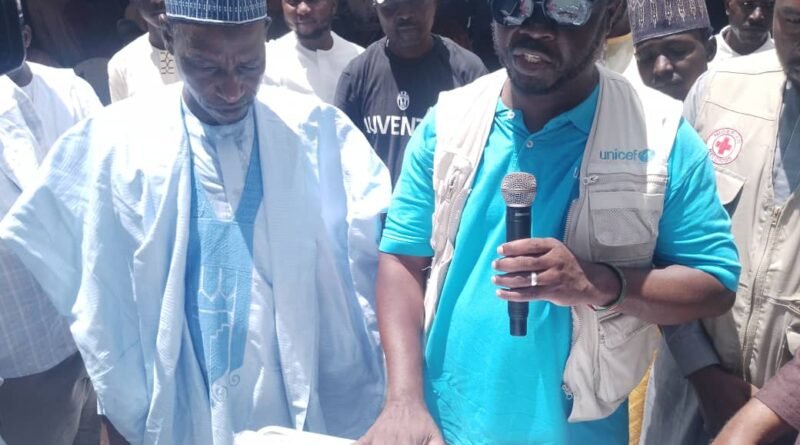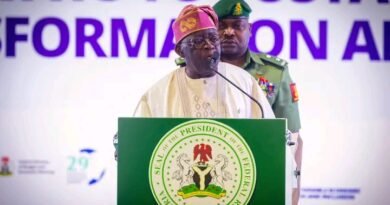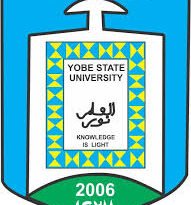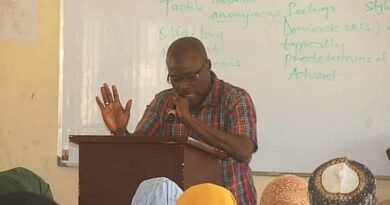UNICEF donates 400 tents to Jigawa school pupils in IDPs camps
From Mika’il Tsoho, Dutse
As part of effort to support children education, the United Nations Children’s Fund (UNICEF) donated 400 Tents to the Jigawa state government for primary schools’ pupils living at Internally Displaced Persons (IDPs) camps.
Presenting the Tents and other learning materials to executive secretary of SEMA, at Nasanawa village Primary and Junior secondary schools in Gwaram local government area of the state, the Chief of UNICEF Kano field Office, Mr Rahama Muhammad sympathized with Jigawa government.
“Today, I wish to announce additional support to the Ministry of Basic Education Jigawa through SEMA from UNICEF and UNHCR in form of 400 tents and 20 school in a box with a total estimated value of 45, million Naira”.
The chief of UNICEF Kano field office who was represented by Mr Mr. Michael Banda explained that, in this year’s raining season Nigeria experienced the worst floods in a decade resulted in the collapsing and destruction of hundreds of public Education and Health facilities, water systems and sanitation facilities.
He maintained that, six million people were reportedly affected of which an estimated 70 per cent are women and children, across many states.
According to him, UNICEF supports emergency prevention, preparedness, and response at the national and subnational levels, ”
UNICEF and UNHCR hopes this support will go a long way to ensure classrooms occupied by IDPs are freed to allow continued learning. Learning will be resourceful and qualitative with the use of school in a box”
“UNICEF is partnering with JiGWA media outfits- both radio and television to ensure educational radio programmes begin to air immediately until December 2024 so that children can access to alternative learning through radio”.
He said,Families, teachers and authorities from the Ministry of Basic Education will work together collaboratively to ensure minimal disruption to the learning processes in all schools affected by IDPs.
“One core strategy across development and humanitarian settings of the current UNICEF-Government of Nigeria Country Programme of Cooperation, 2023-2027, is to align interventions within the humanitarian, development, and peace “triple nexus” agenda, including resilience-building measures, sustainable solutions and humanitarian prevention and exit strategies”.
Mr Banda added that “Our programme pursues risk-informed humanitarian and development nexus programming, and strengthens the resilience of systems, households, and communities in line with UNICEF Core Commitments for Children in Humanitarian Action and the Inter-Agency Standing Committee’s Transformative Agenda and Grand Bargain”.
Receiving the materials, the executive secretary of the state emergency relief management agency, Dr Haruna Mairiga thanks the Agencies for the support.





